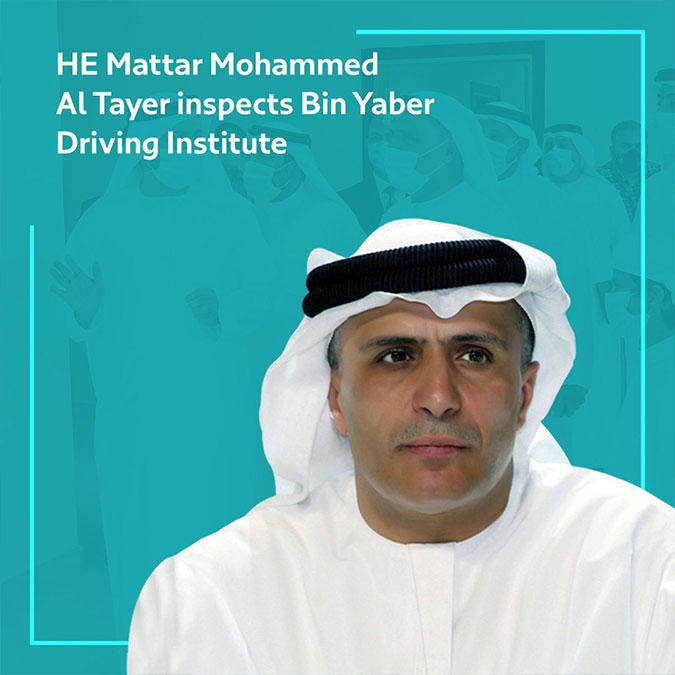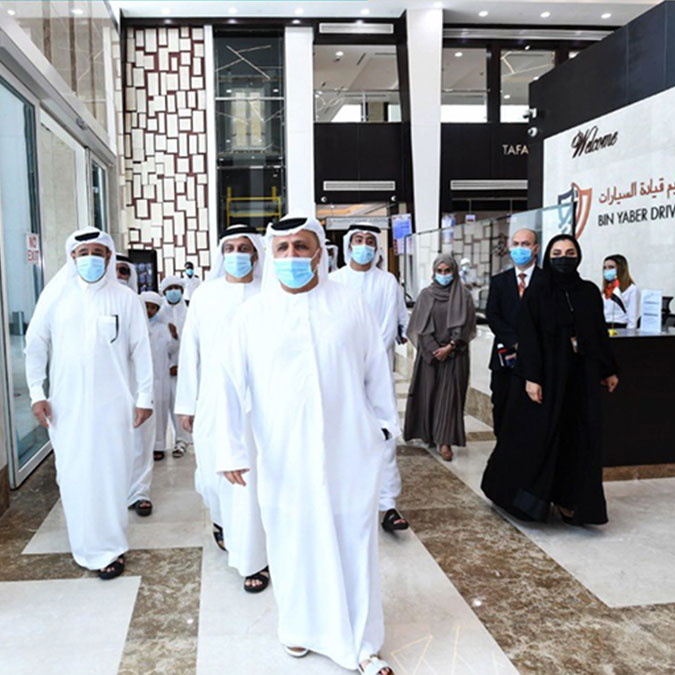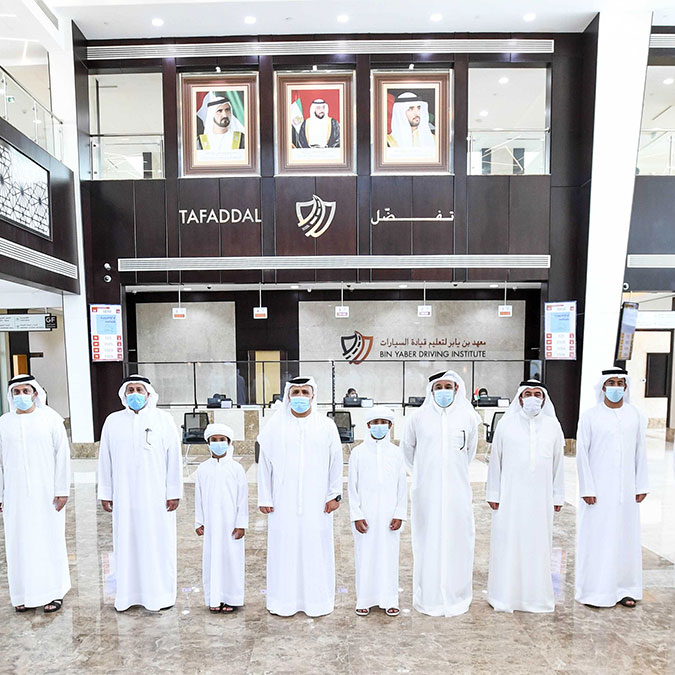
Statement of HE Mattar Mohammed Al Tayer about the announcement of the 10 Principles for the Next 50 Years
October 15, 2020
Dubai Driving License Guide: Process, Tests & Cost
February 12, 2024His Excellency Mattar Mohammed Al Tayer, Director-General and Chairman of the Board of Executive Directors of Roads and Transport Authority (RTA), inspected Bin Yaber Driving Institute at Al Rawiyya. This latest driving institutes spans an area of 320000 sq. feet and offers 11 services for driving learners. It has a smart area for testing trainee drivers that takes the Pass or Fail test decision in a completely automated process.
Mohammed Jaber Abdullah Al Harbi, Chairman of Bin Yaber Driving Institute, and Abdullah Yousef Al Ali, CEO of Licensing Agency, accompanied Al Tayer during a tour of the facility. Mansour Al Falasi, Director of Drivers Licensing, briefed Al Tayer about the Institute, which serves a residential area of more than 200000 people and caters to future expansions of Al Rawiyya.
Bin Yaber Institutes offers 11 services that include training, theoretical and practical tests for all types of driver licenses, eyesight test, and the printing of driver licenses. The Institute offers Tafadal service, a one-stop-shop for serving customers.
It has 4 lecture theatres that can accommodate up to 200 trainees, 85 training and testing vehicles, and an intake of about 80 thousand trainees per annum. It uses solar energy to power parking sheds, thanks to the installation of 2214 solar panels that generate 1.3 megawatts per annum.
Al Tayer inspected the smart driver-testing yard where training vehicles are transformed into smart vehicles capable of detecting and reporting the testing manoeuvres. Through sophisticated cameras and sensors in use, the technology monitors the extent of the driver’s response to each maneuver. Cameras and sensors are connected to a central processor that captures data, calculates errors, and determines the success or failure of the trainee in a fully automated testing environment.
The smart testing yard has a control tower that enables the tester to monitor more than one testing vehicle at a time. The institute keeps a log of all testing phases to ensure the integrity and governance of calculating test results and makes them available for review on request. Vehicles are fitted with tablets, a central processing unit, and five cameras that monitor the interior, front, back and sides of vehicles as well as facial recognition. Sensors are fitted in the steering wheel, brakes, engine and sides to monitor the extent of a potential collision.
The smart driver-testing yards system improves the transparency of the inspection process and reduces the margin of human errors thanks to the use of a smart system free from examiners intervention. The automated process enhances the efficiency of the testing operation and improves the safety factors using technology that eliminates accident-related losses and integrates the human resources into a smart environment.
Bin Yaber Institute features a unique driving experience that increases the efficiency of trainees and accelerates the frequency of tests taken in the yard. The automated process increases the intake of trainees undertaking tests, saves the number of working personnel, increases the test rates by 72%, and reduces the operating costs.
At the end of the tour, Al Tayer hailed the potentials of Bin Yaber Institute and the use of modern technologies that upgrade the training standards and qualify trainees to improve traffic safety.



